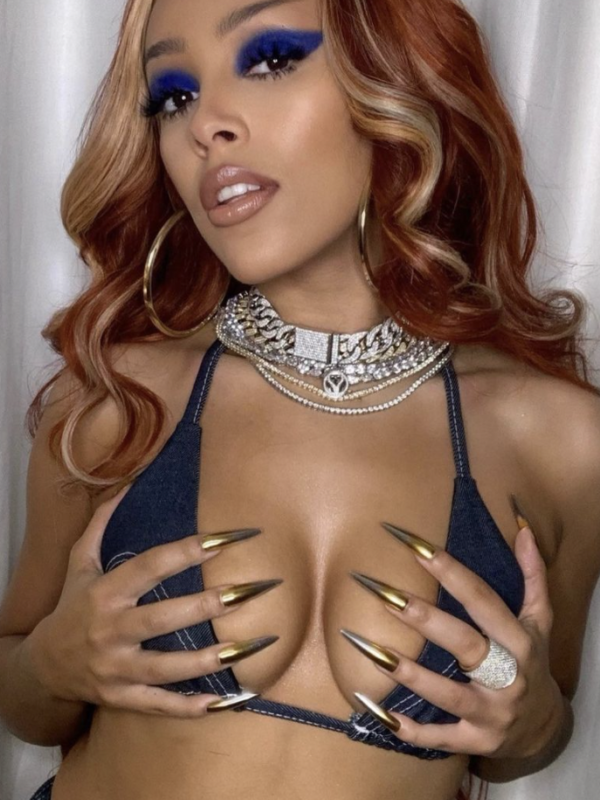‘People Want to See Everyone Lose’: Doja Cat Addresses Last Year’s Drama of Being ‘Canceled’ and Called a Racist
A little over a year after Doja Cat went through a period of being “canceled,” the singer-rapper is now explaining her thoughts on cancel culture.
During an interview on “Nick Cannon Radio,” Doja said, “When you get canceled, one, it’s the context. What did you do? So you take what you did; if it is something that’s hurtful towards people you apologize for it and you grow and you move on.”
Doja Cat addresses being canceled last year. (Photo: @dojacat/Instagram)
Doja acknowledged that everyone doesn’t have to accept the apology of a person who has done wrong. She said, it “is completely fair,” but explained to people who have been canceled to be strategic in “how you handle it.” The 25-year-old said, “If you are combative against people who are continuously trying to tear you down it doesn’t benefit you or the other people. People want to see everyone lose; I mean the chaos is entertaining. People have good reason to be upset sometimes and people have no reason to be upset.”
Last year, the “Like That” singer was screen recorded while talking in a public online chat room with alleged white supremacists on a site called TinyChat. In the video, Doja can be heard speaking sexually while dropping the N-word with the hard -er at the end, which prompted a few of the other participants in the group chat to laugh.
On top of that, followers claimed they found more proof of her being a racist after rediscovering her 2015 single “Dindu Nuffin.” The term dindu nuffin is often used by the alternative right group, which is mainly an online group that spread messages on social media supporting white supremacy. The term derives from “didn’t do nothing,” and the group uses it to mock Black people who have been victims of police brutality.
Many believed Doja used the song to mock Sandra Bland, a Black woman who died in 2015 while in police custody under what many think is mysterious circumstances.
This act earned Doja the title of a racist, and a trending spot on Twitter in addition to several people demanding she be canceled. Cancel culture is deemed as an act of justice when people, typically celebrities, commit a wrongful act. The person’s reputation usually gets degraded, and some people choose to stop supporting that person’s work or art.
The next week after fans called for her cancellation, Doja, who is half Caucasian and half South African, uploaded an apology on Instagram. First addressing the public chat rooms she said, “ I shouldn’t have been on some of those chat room sites, but I personally have never been involved in any racist conversations. I’m sorry to everyone I offended.”
The next day on May 25, the “Say So” singer went on Instagram Live to apologize specifically for the song. She said she learned about the word that day and wanted to redefine it. “It was to kind of take back and f—–g just say f–k you to those people. She assured her fans that the song is “in no way connected to police brutality or Sandra Bland.” Doja, born Amala Ratna Zandile Dlamini, added “To see something like that. To see a song, my song, that I made connected to an innocent Black woman’s death is one of the most awful rumors that I’ve ever encountered.”
Since cancel culture began, several “canceled” celebrities, Kevin Hart being one of them, have spoken out to denounce it. Many believe fans have taken it too far and want to cancel them over matters that have no significance.
It looks like all is well with Doja and fans because since the incident she has received a Billboard award, an MTV award, an NAACP award and more.

